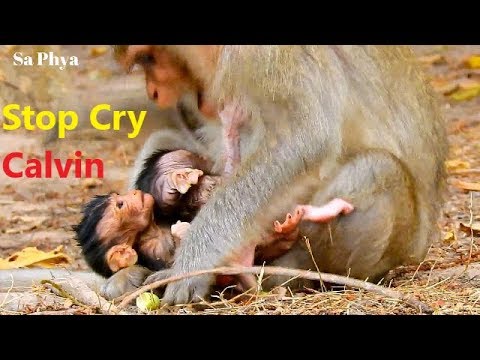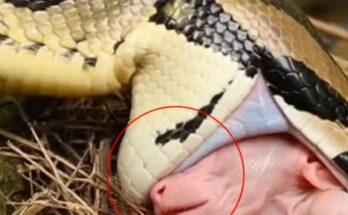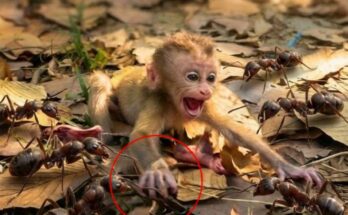
Calvin cries again and again, his voice raw with hunger and longing. His desperate calls attract the attention of Casi, a strong and experienced female within the group. But instead of immediately rushing to comfort him, Casi reacts with frustration. To human eyes, her response might look like anger. She pushes him aside, swats at him, or pulls away when he tries to cling. For Calvin, this rejection only deepens his sadness, and his cries grow louder, filling the air with his pain.
Why does Casi act this way? In primate society, relationships are complicated. Adult females do not always welcome newborns that are not their own. Hunger, stress, and the constant demands of group life can make them impatient. To Casi, Calvin’s endless crying might feel overwhelming, especially if she feels the responsibility is being forced upon her. But beneath the surface of her irritation, there is also a natural instinct—an awareness that this tiny life depends on care, warmth, and protection.
As time passes, Calvin’s cries weaken from exhaustion. His small belly aches from hunger, and his fragile body curls up, desperately seeking warmth. Slowly, Casi softens. She allows him to cling to her fur, his tiny hands gripping tightly as if begging for forgiveness. In this moment, Casi seems to realize what he truly needs—not just food, but a warm hug, a sense of safety in a world that feels so big and frightening to him.
When Casi finally pulls Calvin closer, his cries quiet. He buries his face against her chest, finding comfort in her heartbeat. The warmth of her body gives him strength, even if milk is still scarce. For newborn monkeys, such contact is not only emotional but essential for survival. It regulates their temperature, reduces stress, and provides the reassurance that they are not alone.


